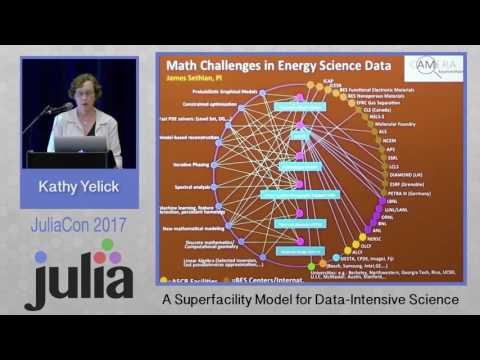Description:
Explore a comprehensive conference talk from JuliaCon 2017 on the Superfacility Model for Data-Intensive Science. Delve into the intersection of big data and scientific research, covering topics such as the Internet of Things, automated search and meta-data analysis, and high-performance computing facilities. Learn about the challenges of filtering and de-noising data, mathematical hurdles in energy science, and the application of machine learning in scientific contexts. Examine the growing disparity between available data and computational capabilities, and understand the Department of Energy's exascale Computing Project. Investigate the costs associated with computation and data movement within machines, and explore programming models for exascale computations. Gain insights into specific examples like whole-mantle seismic modeling and genome analysis, and discover the importance of high-level languages like Julia in tackling these complex computational challenges. The talk concludes with discussions on computer architecture specialization and high-performance computing policies, providing a comprehensive overview of the current landscape and future directions in data-intensive scientific research.
Read more

A Superfacility Model for Data-Intensive Science
Add to list
#Computer Science
#High Performance Computing
#Data Science
#Big Data
#Data Analysis
#Machine Learning
#Scientific Computing
#Exascale Computing